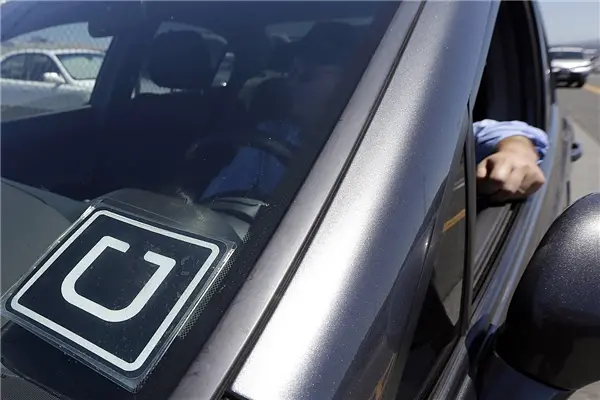Uber Technologies Inc. raised $3.5 billion from the investment arm of Saudi Arabia, part of an arms race over the future of transportation that is attracting the world’s largest technology companies and auto makers.
The investment from Saudi Arabia’s Public Investment Fund extends a fundraising that totals $5 billion, the largest single investment for a venture-backed company. Including the latest contribution, Uber is valued at close to $68 billion, some $20 billion more thanGeneral MotorsCo., the nation’s largest auto maker.
Uber, launched six years ago, has amassed a war chest of more than $11 billion, by far the most raised by a startup, to rewrite the rules of public transportation. The company is aiming to keep a growing army of ride-hailing startups at bay, and battle the world’s two most valuable companies,AppleInc.andAlphabetInc.,which are working on completing autonomous-vehicle technology.
In the past month alone,Toyota MotorCorp.disclosed an investment in Uber, Apple sank $1 billion into Uber’s China rival Didi Chuxing Technology Co., andVolkswagenAGinvested $300 million in Tel Aviv-based taxi-hailing app Gett. Earlier this year, General Motors said it invested in Lyft Inc., and together they plan to test a fleet of self-driving electric taxis beginning next year.
The $5 billion raised in Uber’s latest round easily tops the company’s earlier $2.8 billion round, a previous U.S. record, according to data provider Dow Jones VentureSource. It also tops the previous $4.5 billion global record set earlier this year by Ant Financial, an affiliate ofAlibaba Group Holding Ltd.
Uber is forging close ties to Saudi Arabia at a time when the kingdom is seeking to diversify its economy and reduce its reliance on oil. The country’s new leadership in April laid out an ambitious vision that includes plans to sell less than 5% of state-owned oil giant Saudi Arabian Oil Co., known as Saudi Aramco, and transfer ownership of the company to Saudi Arabia’s sovereign-wealth fund, the Public Investment Fund, so it can build non-oil investmentsabroad.
Yasir Al Rumayyan,the managing director of the Saudi sovereign-wealth fund, is taking a seat on Uber’s board. He joins co-founders Travis Kalanick and Garrett Camp, Huffington Post founder Arianna Huffington, Alphabet chief legal officer David Drummond, TPG Capital founding partner David Bonderman, Benchmark partner Bill Gurley, and others.
The size of the investment underscores the company’s robust need for cash to fuel its business model. Uber pays cash bonuses to entice new drivers to sign up and subsidizes the cost of lower-price rides, especially as it enters new cities.
Those subsidies are being used as a weapon in China, where Uber faces its most formidable challenger in Didi Chuxing. The Beijing-based startup has raised more than $5 billion in equity funding from investors including Apple and China’s two largest internet giants, Tencent Holdings Ltd. and Alibaba Group.
Jean Liu,president of China’s Didi Chuxing, said she is in the process of raising more money than the $3.5 billion Uber disclosed Wednesday. “The more capital that comes into the industry the better,” she said at the Code Conference in Rancho Palos Verdes, Calif., when asked about the Uber announcement.
UberChina, a unit created by Uber last year, has raised $1.2 billion from local investors in the country, including search giant Baidu, and Guangzhou Automobile Group Co.
Didi also is part of a new global alliance of Uber rivals, including Lyft, India’s Ola and Southeast Asia startup GrabTaxi Holdings Pte. Ltd., which are integrating their apps to let users hail rides in foreign countries.
The Middle East is a relatively small market for Uber, which last year pledged to spend $250 million to expand in the region. Uber operates in just 15 cities in the Middle East and North Africa, a fraction of more than 400 cities where the ride-hailing service is available globally.
Since launching in Saudi capital Riyadh two years ago, Uber has battled local competitor Careem, a Dubai-based startup backed by Saudi Telecom Company, Al Tayyar Group and others.
Uber said it has more than 19,000 drivers and 395,000 passengers in the Middle East, several times the numbers of drivers and riders on the service there a year ago.
The company said it plans to work with the Saudi Arabian government to create more opportunities for women in the workforce. Partly because Saudi women are restricted from driving, they make up around 80% of Uber passengers in the country, Uber said.
Uber is the largest international investment by Saudi Arabia’s Public Investment Fund, which is the kingdom’s sovereign investment arm for long-term investments.
Saudi billionaire Prince al-Waleed bin Talal last December invested $104.9 million in Lyft, Uber’s biggest U.S. rival, through his Kingdom Holding Co. Prince al-Waleed also is an investor in Apple, social media company Twitter Inc., andNews Corp,the parent company of The Wall Street Journal. Lyft doesn’t yet operate outside the U.S.
(THE WALL STREET JOURNAL)
 简体中文
简体中文

